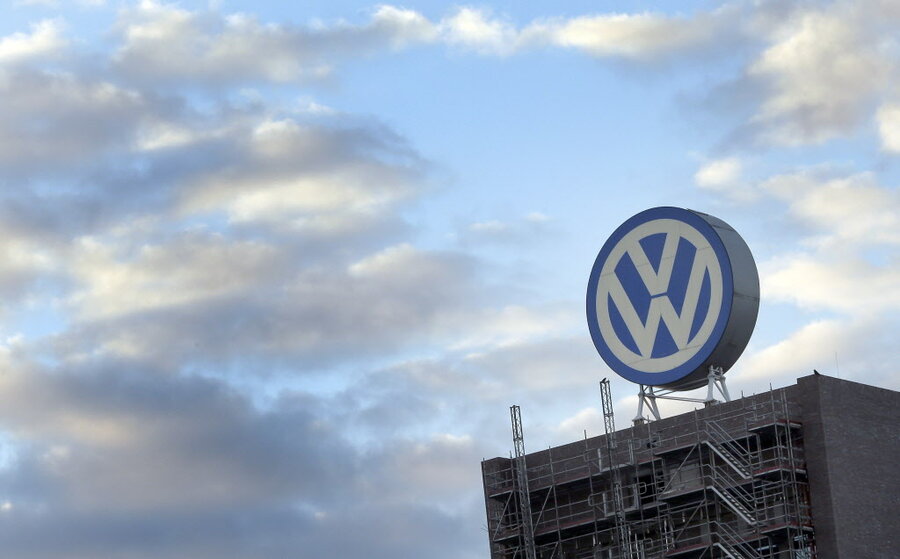Volkswagen to offer up 'generous' compensation to US diesel car owners
Loading...
Volkswagen is trying to make amends with customers affected by the company's cheating on diesel emissions tests.
The automaker says it will be offering compensation packages for the some 600,000 Americans who own a Volkswagen TDI diesel car that produced emissions over the legal limit. Reuters, citing the German newspaper Frankfurter Allgemeine Sonntagszeitung, reported that Kenneth Feinberg, the attorney put in charge of VW's US claims fund, is finalizing the packages now. It is not yet clear whether they will take the form of buy-backs, cash, car replacements, repairs, or possibly a combination.
Those packages will be in addition to the $1,000 in gift cards and credits Volkswagen has already offered US diesel owners in the form of "goodwill packages" announced in September.
The vehicles were outfitted with a device that enabled them to emit lower emissions during government testing than they were during actual driving. The issue first came to light in early fall of 2015, leading to a recall of more than 11 million cars worldwide and the resignation of then-CEO Martin Winterkorn.
Volkswagen faces pressure from the European Commission also to provide compensation packages to VW owners in Europe, where the majority of the affected cars were sold.
VW, Audi, and Porsche vehicles have been impacted by the scandal. During testing, these cars cleared performance requirements, but when driven on normal roads, they emit dangerously high levels of nitrogen oxides -- up to 40 times the legal limit, according to Consumer Reports.
The company has said that the defeat device software it used is legal in Europe. Europe’s policies on emissions testing are only loosely regulated, but they are currently undergoing debate and revision in the European Parliament. New rules are set to go into place next year.
Mr. Feinberg said in an interview with The Frankfurter Allgemeine Sonntagszeitung that people who feel their health was affected by higher-than-reported emissions should feel open to suing the VW, though he wasn't sure he would include accept such claims in the company's payouts.
In January, US regulators rejected VW’s initial proposal to fix its two-liter diesel cars equipped with the so-called “diesel defeat” software, which means the automaker could be forced into buying back many of the affected cars.
VW stocks have plummeted since the scandal broke, now trading at less than $30 a share. The company has also chosen to delay releasing its annual earnings report for 2015, which was originally scheduled for March 10. German economic regulations require company earnings reports to be made public no later than four months after the end of the fiscal year.
Bloomberg reports that VW has revised its earnings target to reflect the impact of the emissions scandal, setting aside approximately $7.5 billion for the cost of repairing around 11 million vehicles that were affected worldwide. According to Reuters, the actual costs may add an additional two to three billion Euros to that total, or approximately $2.2 billion.
Porsche Automobil Holding SE, which controls Volkswagen, has also decided to wait on holding its annual meeting, originally scheduled for April 21. It cited the scandal and an investigation into transparency at Volkswagen as the reason for the delay.








